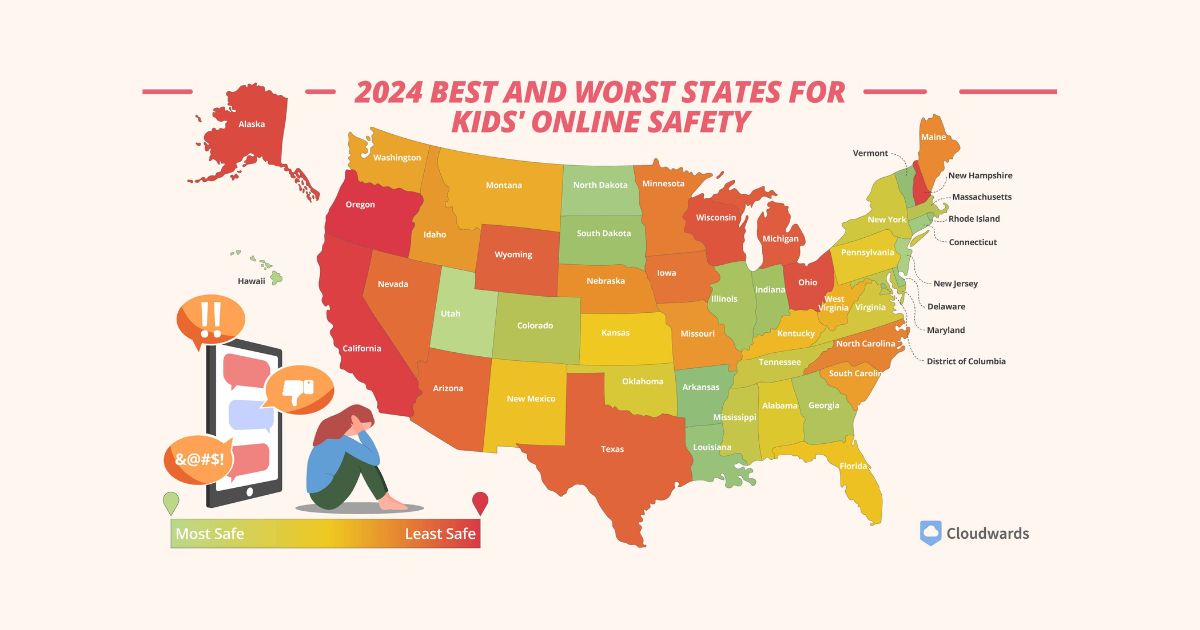Technology publication Cloudwards just released a new report, “The Best & Worst US States for Kids’ Online Safety in 2024” on the best and worst U.S. states for kids’ online safety.
The research explored how each state dealt with issues like cyberbullying, online harassment, internet safety legislation, and mental health support.

In addition to this list, we share key findings from our data analysis and what they might suggest about child online safety across the U.S.
“Though the internet can add extra dimensions to kids’ education and enrichment, the prevalence of cyberbullying and online predation is a major concern for parents and guardians,” said the report.
Florida received mixed reviews. Overall, it ranked 27th, but according to Cloudwards, the state was number one in cyberbullying and safety legislation.
After analyzing online safety data related to each U.S. state and conducting further research, Cloudwards stated the following.
“The prevalence of internet crimes against children is incredibly worrying, but there are some steps you and your child can take to help reduce the risk and feel safer online.
The tech publication advises parent and kids to take certain precautions.
Never post details like your address, school, phone number or date of birth anywhere online. The same goes for photos that may reveal details about you, like a photo of a certificate with your full name or your school’s name. Setting your social media profiles to “private” can help you stay safe.
Never meet up with people you meet online. If someone asks you to meet them in real life, let a parent or guardian know right away.
Don’t open links you receive via email or private messaging. These could be from people trying to get your personal information.
Use strong passwords and never share them with anyone. Parents and guardians can increase security by making sure antivirus software, password managers and multi-factor authentication are up and running.
If you’re a parent or guardian, regularly communicate with your child about the importance of online safety. Let your child know that they can always talk to you if they have any questions or feel uncomfortable about something online.























